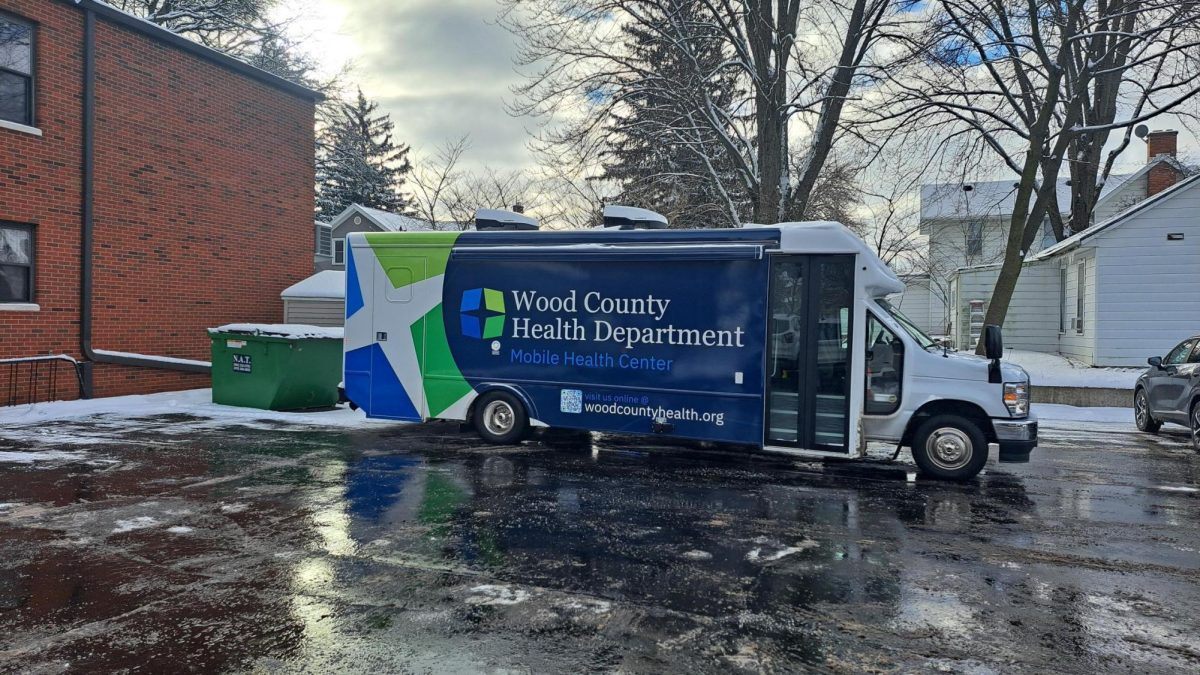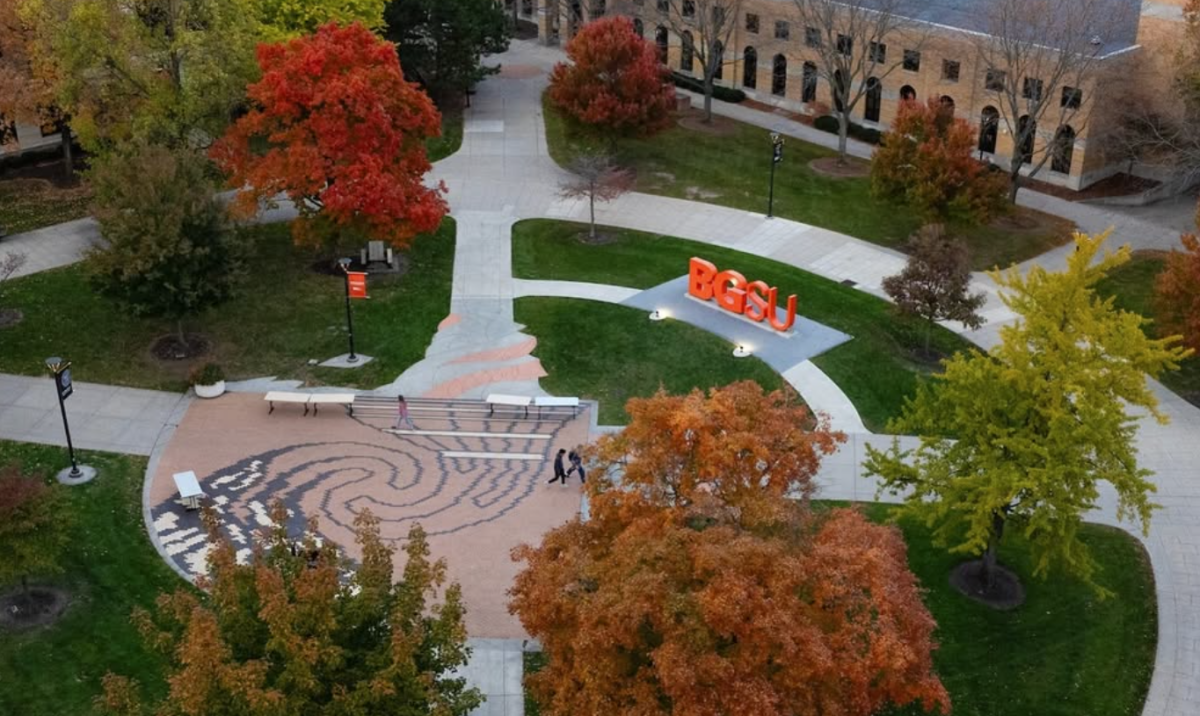The University hosted the last of four community forums that discussed the reverse FCC auction for WBGU-TV on Wednesday, Sept. 2.
University President Mary Ellen Mazey and Chief Communications Officer David Kielmeyer made opening statements to those at the forum before the floor was opened to comments.
Mazey introduced five University trustees and said she and Kielmeyer “are here to listen.”
Margaret Tucker, who founded the station with her husband Duane Tucker, was present in the audience.
Kielmeyer said the FCC approached the University to sell the station because there is a need to free up the spectrum to meet the need of airwaves for mobile devices.
For stations that choose to participate, a reverse auction will be held; meaning the auction will start with the highest amount and go down from there.
He then explained the four options available to the University in regards to the reverse FCC auction.
Applause from the audience followed Kielmeyer saying the first option, which is to not participate.
The other three options include channel-sharing with another station, switching from UHF to VHF signal, or to sell the station and stop broadcasting.
After Mazey and Kielmeyer’s opening comments, Secretary of the Board of Trustees Patrick Pauken led the forum, giving audience members two minutes to speak each.
One after the other, audience members voiced their opinion on the auction.
Everyone who spoke said they did not want the University to sell the station.
Mayor Richard Edwards was the first of community members to speak at the forum.
“I am joining with the President of City Council, Michael Osbacher, and the members of City Council who voted unanimously on August 17, 2016 in support of keeping WBGU-TV on the air,” Edwards said.
Edwards said selling the station would affect the University as a whole.
“I applaud President Mazey’s decision to hold public forums on a regional basis and I sincerely and earnestly hope that WBGU-TV will not go dark,” he said. “To do so, in my view, and I know in the view of countless others would seriously undercut and, I fear, erode BGSU’s standing as a strong regional, and increasingly as a national, university.”
Senior Brittany Shank spoke at the forum about her experience working at the station.
“To think I would graduate from a University that cares more about money than education is disheartening,” Shank said.
She said working at the station has given her leadership and technical skills that have helped her stand out as an intern in Los Angeles.
Her experience at the station has also allowed her to stand out locally with a paid internship.




















